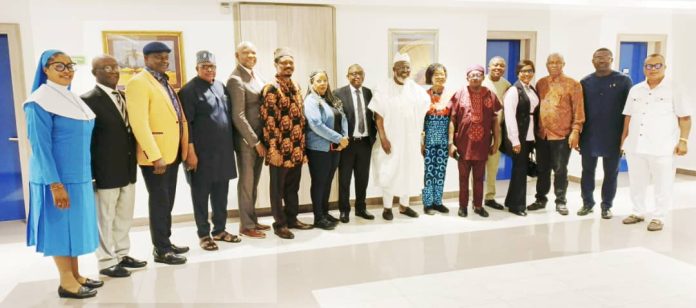News Investigators/ The Bureau of Public Procurement (BPP), has unveiled a comprehensive framework and guidelines for strengthening procurement practices in Nigerian universities.
Adebowale Adedokun, the Director-General of BPP said this in a statement issued by Zira Nagga, Head, Public Relations, BPP, in Abuja on Friday.
Mr Adedokun spoke at the Special University Council Retreat Programme organised by the Umahi Federal University of Health Sciences (DUFUHS) in Enugu.
He said the guidelines were aligned with global best practices to promote transparency, accountability, and fairness, leading to sustainable growth and direct benefits to Nigerians.
Mr Adedokun said one of the key aspects of the guidelines for the universities was the adoption and usage of the Revised Standard Bidding Documents (SBDs).
Others, he said were transparency and accountability through online submissions of requests and quarterly reports of procurement activities.
“Other key aspects are strategic planning to align procurement with university priorities and position the institutions as both national and global leaders through world-class infrastructures.
“Capacity building to enhance utilisation of BPP-approved training programmes, such as continuous mandatory capacity programmes, Nigeria Procurement Certification Programme (NPCP),” he added
The D-G said that the university councils had a role to play in providing oversight functions and ensuring that management complies with BPP guidelines promptly, as well as in the issuance of applicable administrative sanctions.
He emphasised the centrality of procurement integrity to national development, noting that universities, as citadels of knowledge, must lead in demonstrating transparent, accountable, and sustainable use of resources.
Mr Adedokun said that procurement was important for universities because of its support for quality teaching and learning facilities, research infrastructure and equipment, and fair allocation of resources.
“It is also important for local content promotion and Small and Medium-sized Enterprises (SMEs) participation; and, achievement of Sustainable Development Goals (SDGs) in education, health, innovation, and infrastructure.”
He emphasised that procurement should be treated as a professional cadre where officers were recruited to grow through the ranks.
“It must be staffed and organised in compliance with relevant laws and extant government circulars.
“It should be noted that no person or officer can head a procurement department of a university until such a person has gone through approved training by the BPP,” he said.
Mr Adedokun emphasised that procurement officers have a crucial role in executing procurement activities and cautioned that they will be held to the highest ethical standards at all times.
The D-G further stated that any officer failing to meet standards would face removal and sanctions.
Mr Adedokun expressed delight at the introduction of a course on public procurement for final year students by the university and other related reforms.
He urged universities to embrace these guidelines for transforming and positioning Nigerian universities as global models of integrity-driven growth and economic development.
According to him, when procurement works, governance works, and when governance works, universities flourish, and when universities flourish, nations prosper.
NAN


